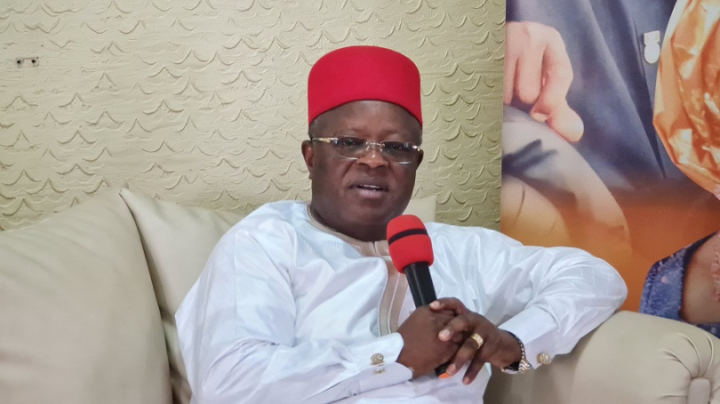The commitment to the swift completion of the Lagos-Abidjan Highway by the Federal Government was formally announced by the Minister of Works, Senator David Umahi. This announcement came during a meeting in the minister’s office on Thursday, where he received a comprehensive briefing from an ECOWAS delegation led by Mr. Sediko Douka, the ECOWAS Commissioner for Infrastructure, Energy, and Digitalization.
Senator Umahi, recognizing the significance of the Lagos-Abidjan Highway project, emphasized its potential to bring about rapid integration and development in West Africa. However, he underscored the necessity of segmenting the project to facilitate efficient work processes and ensure a timely conclusion.
“To achieve ease of work and accelerate completion, the project should be sectioned, with a well-defined process in place based on the viability of each section. Fast-tracking our section’s completion should follow thorough feasibility studies, technical assessments, and design considerations,” stated Minister Umahi.

Additionally, the Minister of Works advocated for the use of concrete pavement along the Nigerian corridor of the Lagos-Abidjan Highway. He highlighted the advantages of concrete roads, citing their durability, lower maintenance requirements, increased strength to withstand heavy traffic loads, and the Nigerian government’s endorsement of this construction approach.
“A lot of advantages come with using concrete for road construction. Concrete roads have a longer lifespan compared to asphalt roads, reducing the need for frequent repairs and maintenance. They are stronger, capable of withstanding heavy traffic loads, and also have lower maintenance costs. This approach has already been adopted by the Nigerian government,” explained Minister Umahi.
Mr. Douka, leading the ECOWAS delegation, provided valuable insights during the meeting. He emphasized the hindrance to Africa’s economic integration caused by substantial deficits in transportation infrastructure. According to the ECOWAS Commissioner for Infrastructure, Energy, and Digitalization, the Lagos-Abidjan Highway project aligns with the 2050 ECOWAS vision, aiming to enhance infrastructure development to foster economic growth and regional integration.
The Lagos-Abidjan Highway project, spanning 1,028 km, was initiated by the Heads of States and Government of the Corridor Member States, including Benin (128 km), Cote d’Ivoire (155 km), Ghana (576 km), Nigeria (79.5 km), and Togo (89.2 km). The project’s inauguration took place in Yamoussoukro, Cote D’Ivoire, on February 28, 2013.
Douka further elaborated that the steering committee for the Lagos-Abidjan Highway project would consist of the Ministers of Works from the Corridor Member States and the Commissioner of Infrastructure of the ECOWAS Commission. This committee would play a crucial role in providing oversight guidance for the effective implementation of the project.
The commitment expressed by the Nigerian government and the collaborative efforts with ECOWAS reflect a shared vision for enhancing transportation infrastructure, fostering economic growth, and promoting regional integration in West Africa. The emphasis on thorough planning, feasibility studies, and the endorsement of advanced construction methods like concrete pavement underscore the determination to ensure the success of the Lagos-Abidjan Highway project. As progress continues, it is expected that this initiative will contribute significantly to the broader goals of the ECOWAS vision for the region’s development.
Support InfoStride News' Credible Journalism: Only credible journalism can guarantee a fair, accountable and transparent society, including democracy and government. It involves a lot of efforts and money. We need your support. Click here to Donate
